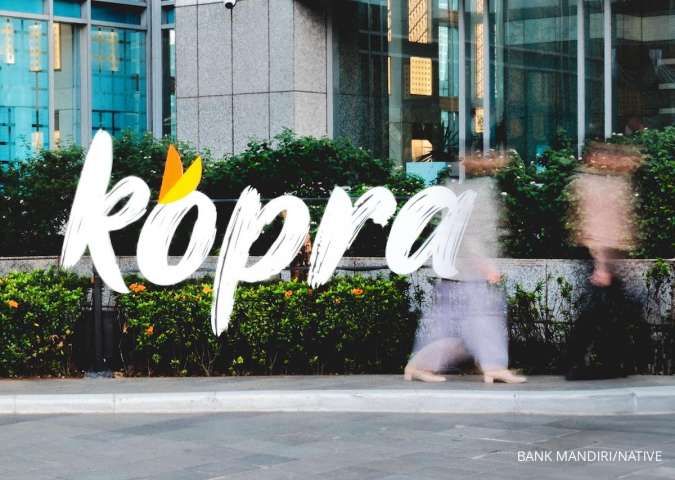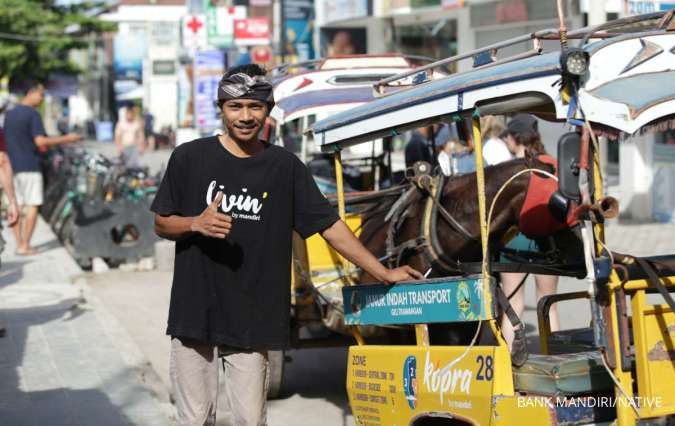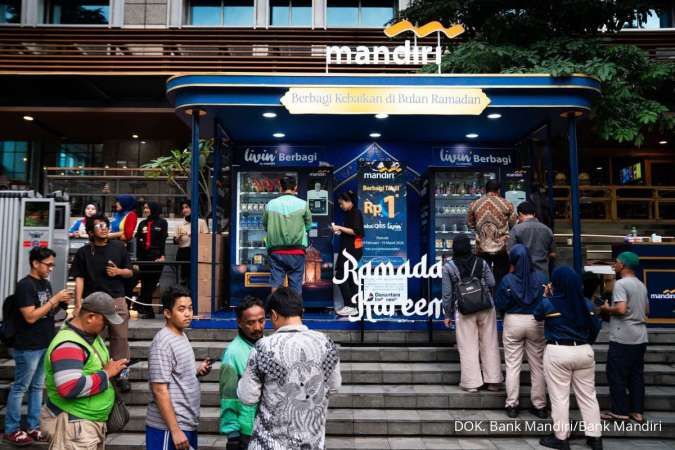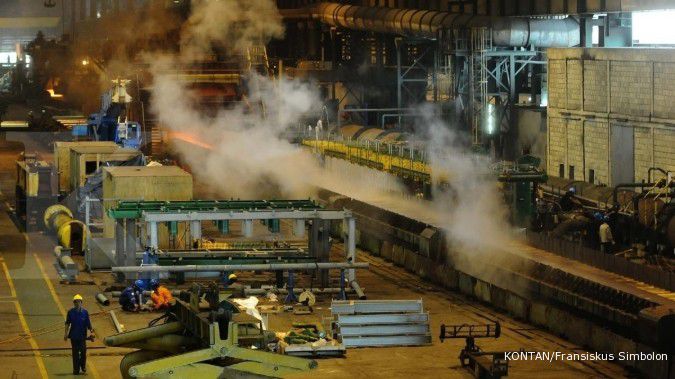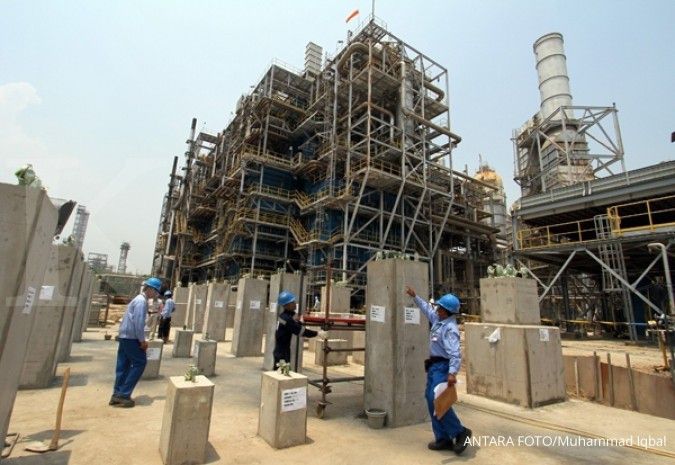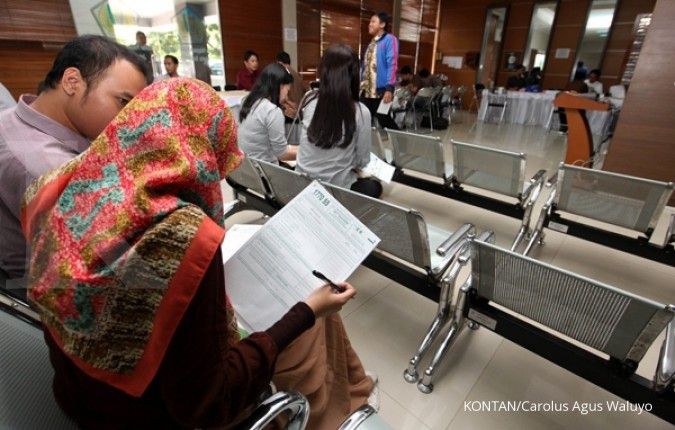JAKARTA. Local steel producers are demanding that the government impose an export tax on semi-finished steel so that domestic needs can be met and the industry can produce the goods more efficiently. Two major steel plate manufacturers — PT Gunung Raja Paksi and publicly listed PT Gunawan Dianjaya Steel — said a levy of around 10 percent would be necessary to help secure raw materials — steel slabs — domestically. At present, both still rely on cheaper imports from countries like Brazil, Japan, Russia and Ukraine. However, local supply would be preferable due to faster and flexible delivery, they said. Raja Paksi president director Djamaluddin Tanoto said that a 10 percent export tariff would be sufficient to effectively keep the raw materials in the country. That would reduce the gap of US$50 per ton between local and imported steel slabs at the current price. “The government must issue a similar policy to China, which applies export tax on intermediary goods needed by the [downstream] industry whenever the producers do not want to supply it,” he recently said, citing a 25 percent tax charged by the Chinese government. The steel slab market in Indonesia is oligopolistic in nature with several buyers and a small number of sellers. Presently, the type of steel is solely produced by PT Krakatau Posco, a joint venture between state-owned steel maker PT Krakatau Steel and South Korean steel giant Posco, which both Raja Paksi and Dianjaya allege have sold the steel slabs at higher price in the country in comparison to selling prices in their export destinations. Gunawan Dianjaya corporate secretary Hadi Sutjipto expressed a similar view to Djamaluddin, saying that even when the domestic price was slightly higher than imports, the firm would prioritize local sourcing. “We actually prefer to get the material here because of proximity as well as faster and flexible delivery,” he told The Jakarta Post on Friday. Krakatau Posco now uses part of the steel slabs for further production at its steel plate mill and sells the rest to Krakatau Steel and local producers, including Raja Paksi and Dianjaya, as well as to overseas markets. Downstream producers consume around 2.6 million tons of steel slabs each year. Like Krakatau Posco, both Raja Paksi and Dianjaya also use the steel slabs to produce steel plates, meaning they compete in finished products and therefore, the availability of the supply could increase rivalry among them. Industry Ministry director general for base manufacturing industry Harjanto could not be reached for comment. Krakatau Posco corporate secretary Christiawaty Ferania Kaseger rejected the allegation that the firm sold the steel slabs at a lower price. “Our domestic sales price follows the market price in Indonesia and we don’t sell our products at an irregular price,” she said in a text message. Christiawaty further added that the price also depended on various factors, such as volume and the characteristics of purchases, for example spot versus long-term purchases. (Linda Yulisman)
Govt urged to impose export tax on steel slabs
JAKARTA. Local steel producers are demanding that the government impose an export tax on semi-finished steel so that domestic needs can be met and the industry can produce the goods more efficiently. Two major steel plate manufacturers — PT Gunung Raja Paksi and publicly listed PT Gunawan Dianjaya Steel — said a levy of around 10 percent would be necessary to help secure raw materials — steel slabs — domestically. At present, both still rely on cheaper imports from countries like Brazil, Japan, Russia and Ukraine. However, local supply would be preferable due to faster and flexible delivery, they said. Raja Paksi president director Djamaluddin Tanoto said that a 10 percent export tariff would be sufficient to effectively keep the raw materials in the country. That would reduce the gap of US$50 per ton between local and imported steel slabs at the current price. “The government must issue a similar policy to China, which applies export tax on intermediary goods needed by the [downstream] industry whenever the producers do not want to supply it,” he recently said, citing a 25 percent tax charged by the Chinese government. The steel slab market in Indonesia is oligopolistic in nature with several buyers and a small number of sellers. Presently, the type of steel is solely produced by PT Krakatau Posco, a joint venture between state-owned steel maker PT Krakatau Steel and South Korean steel giant Posco, which both Raja Paksi and Dianjaya allege have sold the steel slabs at higher price in the country in comparison to selling prices in their export destinations. Gunawan Dianjaya corporate secretary Hadi Sutjipto expressed a similar view to Djamaluddin, saying that even when the domestic price was slightly higher than imports, the firm would prioritize local sourcing. “We actually prefer to get the material here because of proximity as well as faster and flexible delivery,” he told The Jakarta Post on Friday. Krakatau Posco now uses part of the steel slabs for further production at its steel plate mill and sells the rest to Krakatau Steel and local producers, including Raja Paksi and Dianjaya, as well as to overseas markets. Downstream producers consume around 2.6 million tons of steel slabs each year. Like Krakatau Posco, both Raja Paksi and Dianjaya also use the steel slabs to produce steel plates, meaning they compete in finished products and therefore, the availability of the supply could increase rivalry among them. Industry Ministry director general for base manufacturing industry Harjanto could not be reached for comment. Krakatau Posco corporate secretary Christiawaty Ferania Kaseger rejected the allegation that the firm sold the steel slabs at a lower price. “Our domestic sales price follows the market price in Indonesia and we don’t sell our products at an irregular price,” she said in a text message. Christiawaty further added that the price also depended on various factors, such as volume and the characteristics of purchases, for example spot versus long-term purchases. (Linda Yulisman)
